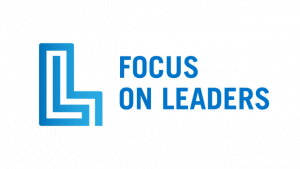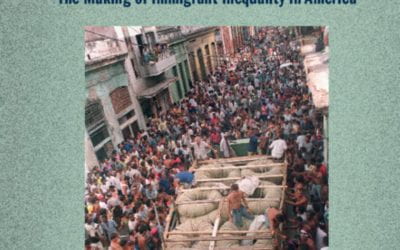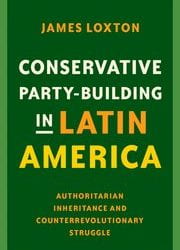Focus on Leaders under Covid
What have we learned
Photos courtesy of Camelia Ilie, INCAE
In the last two years of the pandemic, I have lived on a personal and professional level — like many people — a tsunami of experiences that have marked a profound change in my view of what is a priority in my life, now and in the future. We are no longer the same, but we still do not know who we are or who we want to be. We are afraid to leave the past entirely, but we could glimpse that there is “something more” and, timidly, that we can expect “something better” in our life experience.
If we already lived in an exhausted society, overwhelmed by technological acceleration before 2019, now we live with a certain degree of dislocation. The return to face-to-face meetings feels like the first baby steps; we are amazed that nothing has happened to us, but with the expectation and fear of what may happen to us.
We want to get out of our shelters, but at the same time, we feel that nowhere will we be as protected and safe as in our homes. We want to see our colleagues again, but not with the same intensity and long days as before. We want to travel again, but we are less motivated by long lines at airports or by the idea of being locked up for several hours with hundreds of strangers to attend a meeting of a couple of hours. Especially in Latin America, where there is very poor infrastructure and bureaucratic national borders, it is not clear that the return to presence will generate a better quality of life.
We, adults, suddenly find out that we no longer know what it is a meaningful life. The promotion, the added responsibility, having more teams or a larger budget feel less exciting than having time to dabble in a new book, learn to draw with a new technique, take pictures of nature, watch an interesting documentary, or just breathe and be. In her book, The Inner Work of Age, the writer Connie Zweig, a renowned psychologist, reminds us that there comes a time when the journey of a life with meaning and fulfillment must move “from Role to Soul.” Has the pandemic experience accelerated the turn towards our interior, to be more complete human beings, more understanding and compassionate with our families, collaborators, and communities?
How to build our new identity?
Below, I share some reflections and learnings about what I have observed, read, analyzed in these two years in which our leaders and our society, in general, have lived in a large public showcase. We have all been the observers behind the “Rear Window” and we have all been observed at the same time. What a great discomfort, but at the same time, what an excellent opportunity to learn, adjust, improve, reinvent.
Presence, long meetings, organizational structures and reporting systems, annual evaluations, and direct supervision were thought of in organizations several centuries ago, and, paradoxically, although the environment has changed, they are perpetuated in our times in most organizations. At least, this has been the dominant organizational model until before the pandemic in Latin America.
A global lockdown and a forced delegation of trust in our collaborators had to come to show us that we were living in an inexplicable obsolete state that, instead of promoting greater competitiveness, had led to emotional detachment, accumulated fatigue, chronic stress in the entire workforce.
Two years later, a study of 360 billion emails by Tiona Zuzul, a strategy professor at Harvard Business School, shows that informal networks and so-called silos, used to solve problems more quickly and promote project-focused collaboration, have been very positive during the pandemic.
The study also points out what we have been observing globally. The collaborators surprised their superiors very positively since they demonstrated that they are autonomous, responsible, productive, and resourceful. The pandemic ended the myth of face-to-face attendance and the need for observation and supervision. Productivity has not only not decreased but has grown in recent years.

Inclusive leadership, emotions, and compassion
The sadly recently deceased Sigal Barsade, a brilliant professor at Wharton, specializing in organizational behavior, was a pioneer in defending the need for authentic expression of emotions and inclusive leadership, in which all feelings, both positive and negative, are accepted, understood, and embraced. As her obituary in the New York Times mentions, “…she warned that not all positive emotions are equally appropriate for all groups…Negative emotions also had a place and pointed out that anger was an important indicator that something is wrong and must be addressed.”
Definitely, the deep understanding of the feelings of the collaborators of an organization and the acceptance of their emotional states is what defines a truly inclusive leader. The trend of team-building experts running workshops for everyone to claim to feel motivated and happy, forcing fear, worry, or helplessness to be inhibited, has brought organizational cultures more problems than benefits. The Latin American paternalistic models – where the expression of fragility is seen as a weakness – made this feeling of abandonment and emotional detachment from the work environment worse.
An excessively positive leader is not perceived by others as authentic, as indicated by multiple studies in organizational psychology and mental health. Professor Tabitha Kirkland of the University of Washington puts it bluntly: “With toxic positivity, we want someone to feel better, but it usually doesn’t have the desired effect; it shuts the other person up…it can also make the person like it seem hard to connect with or even a little fake.”
In our region, the feeling is similar, as indicated by the study on the Best Places to Work in Latin America in 2021 carried out by Great Place to Work (GPTW™): “Although health and well-being go hand in hand, true wellness in the workplace involves more than just free fitness classes. In our research, well-being at work is defined by factors such as feeling cared for and believing that the company is a healthy workplace, psychologically and emotionally.”
To achieve these open cultures where paternalism is losing weight, Latin American organizations need to promote more visionary, creative, sustainable, and inclusive leadership, in a sense defined by the University of Cambridge: “…collaborative and participatory, building commitment through dialogue and consensus, with democratic approaches…and a culture and structure that provides peer support, encourages and recognizes achievement.”

Sustainable leadership and the long term
We could say that we had become the society of impatience before the pandemic. Individualism, the search for immediate return short-term benefits, had come to dominate us. Living through a global crisis has shown us that we are stronger as a society and that we can achieve extraordinary results when we work collaboratively for a common purpose.
In this new cycle that seems to start in 2022, we have the opportunity to apply this learning in our organizational environments, developing sustainable leadership, so needed in our society, in general, and so urgent in Latin America. Thinking about the long-term impact of our decisions allows us to serve better all the stakeholders of our organizations, our customers, employees, collaborators, community.
Being visionary and creative will allow us to aspire to achieve much-desired competitiveness in our region. It takes courage to be a transformative leader, but it also takes relevant knowledge, the ability to innovate, and the willingness to spend time with teams. For our collaborators to shine, we have to give them quality personal support to help them acquire skills that will later provide the autonomy and the ability to innovate. We have to invest in their continuous learning and listen to them carefully.
Finally, a sustainable leader designs and plans long-term strategies, ensuring execution that does not undermine value creation. In our region, in particular, we urgently need to eliminate short-termism and turn towards a vision focused on the inclusive future for a more equitable, competitive, and sustainable Latin America.
Focus on Leaders under Covid
Que hemos aprendido
Por Camelia Ilie-Cardoza
En los últimos dos años de pandemia, he vivido a nivel personal y profesional—como muchas personas— un tsunami de experiencias que han marcado un cambio profundo en la mirada hacia lo que es prioritario en mi vida, ahora y en el futuro. Ya no somos los mismos, pero aún no sabemos quienes somos o quienes queremos ser. Nos da miedo dejar completamente el pasado, pero pudimos vislumbrar que hay “algo mas” y, con timidez, que podemos esperar “algo mejor” en nuestra experiencia vital.
Sí ya vivíamos en una sociedad cansada, abrumada por la aceleración tecnológica antes del 2019, ahora vivimos con cierto grado de desubicación. La vuelta a las reuniones presenciales se siente como los primeros pasos de los niños, estamos asombrados que no nos ha pasado nada, pero con la expectativa y el miedo a lo que nos puede pasar.
Queremos salir de nuestros refugios, pero a la vez sentimos que en ningún lugar estaremos tan protegidos y seguros como en nuestras casas. Queremos volver a ver a nuestros compañeros, pero no con la misma intensidad y largas jornadas de antes. Deseamos volver a viajar, pero estamos menos motivados por las largas colas en los aeropuertos, o por la idea de estar encerrados por varias horas con cientos de desconocidos para atender una reunión de un par de horas. Especialmente en América Latina, en donde tenemos infraestructuras muy deficitarias y fronteras nacionales burocráticas, no está claro que el regreso a la presencialidad generará más calidad de vida.
Los adultos nos encontramos, de repente, que ya no sabemos que es tener una vida con significado. La promoción, la responsabilidad adicional, tener más equipo o más presupuesto se siente menos emocionante que tener tiempo para incursionar en un nuevo libro, aprender a dibujar con una nueva técnica, fotografiar la naturaleza, ver un documental interesante, o simplemente respirar y ser. En su libro The Inner Work of Age, la escritora Connie Zweig, una reconocida psicóloga, nos recuerda que llega un momento en el que el viaje de una vida con sentido y plenitud debe pasar del “Papel al Alma” (“From Role to Soul”). ¿Nos ha acelerado la vivencia de una pandemia el giro hacía nuestro interior, para ser unos seres humanos más completos, mas comprensivos y compasivos con nuestras familias, nuestros colaboradores, nuestras comunidades?
¿Cómo construir nuestra nueva identidad?
Les comparto a continuación algunas reflexiones y aprendizajes sobre lo que he observado, leído, analizado en estos dos años en los que nuestros líderes y nuestra sociedad, en general, ha vivido en una gran vitrina pública. Todos hemos sido los observadores desde la “Ventana Indiscreta” y todos a la vez hemos sido observados. Que gran incomodidad, pero a la vez que gran oportunidad de aprender, ajustar, mejorar, reinventar.
La presencia, las reuniones largas, las estructuras y los sistemas de reportes organizativos, las evaluaciones anuales y la supervisión directa se pensaron en las organizaciones hace varios siglos, y, paradójicamente, aunque el entorno ha cambiado, se perpetuaron en nuestros tiempos en la mayoría de las organizaciones. Por lo menos este ha sido el modelo organizativo dominante hasta antes de la pandemia en América Latina.
Tuvo que llegar un encierro global y una delegación obligada de confianza en nuestros colaboradores para demostrarnos que vivíamos en un obsoletísimo inexplicable que, en lugar de promover una mayor competitividad, había llevado a un desprendimiento emocional, a un cansancio acumulado, a un estrés crónico en toda la fuerza laboral.
Dos años después, un estudio de 360 billones de emails realizado por Tiona Zuzul, profesora de Estrategia de Harvard Business School, muestra que las redes informales y los mal llamados silos, empleados para solucionar problemas de forma más ágil y promover la colaboración enfocada en proyectos, han sido muy positivos durante la pandemia.
El estudio señala también lo que hemos venido observando a escala global, que los colaboradores sorprendieron muy positivamente a sus superiores ya que demostraron que son autónomos, responsables, productivos y recursivos. La pandemia acabó con el mito de la presencialidad y la necesidad de observación y supervisión. La productividad no solamente que no ha bajado, sino que ha crecido en últimos años.

Liderazgo inclusivo, las emociones y la compasión
La tristemente recién fallecida Sigal Barsade, brillante profesora de Wharton, especializada en comportamiento organizativo, fue una pionera en la defensa de la necesidad de expresión auténtica de las emociones y un liderazgo inclusivo, en el que se acepten, entiendan y embracen todos los sentimientos, tanto positivos como negativos. Según menciona su obituario en el New York Times, “…advirtió que no todas las emociones positivas son igualmente adecuadas para todos los grupos…Las emociones negativas también tenían un lugar y señaló que la ira era un indicador importante de que algo está mal y debe abordarse.
En definitiva, la comprensión profunda del sentir de los colaboradores de una organización y la aceptación de sus estados emocionales es lo que define un líder auténticamente inclusivo. La moda de los expertos en desarrollo de equipos que organizaban talleres para que todo el mundo declare sentirse motivado y feliz, obligando a inhibir el miedo, la preocupación, o la sensación de desamparo, ha traído más problemas a las culturas organizativos que beneficios. Los modelos paternalistas latinamericanos – en donde la expresión de la fragilidad está vista como una debilidad – empeoran aún más esta sensación de desangelación y desprendimiento emocional del entorno laboral.
Un líder excesivamente positivo no se percibe por los demás como un líder auténtico, cómo lo indican múltiples estudios de psicología organizacional y de salud mental. El Profesor Tabitha Kirkland, de la Universidad de Washington lo expresa con claridad: “Con la positividad tóxica, queremos que alguien se sienta mejor, pero normalmente no tiene el efecto deseado; hace callar a la otra persona…también puede hacer parecer a la persona que lo practica difícil de conectar o incluso un poco falsa.”
En nuestra región, el sentir es similar, como lo indica el estudio sobre los Mejores Lugares para trabajar en América Latina en 2021 realizado por Great Place to Work (GPTW™): “Si bien la salud y el bienestar van de la mano, el verdadero bienestar en el lugar de trabajo implica algo más que clases gratuitas de fitness. En nuestra investigación, el bienestar laboral se define por factores tales como sentirse cuidado y creer que la empresa es un lugar de trabajo saludable, desde el punto de vista psicológico y desde el emocional.”
Para lograr estas culturas abiertas en donde el paternalismo vaya perdiendo peso, las organizaciones de América Latina necesitan promover liderazgos más visionarios, creativos, sostenibles e inclusivos, en el sentido definido la Universidad de Cambridge: “…colaborativo y participativo, construyendo compromiso a través del diálogo y el consenso, con enfoques democráticos…y una cultura y estructura que brinden apoyo entre pares, motive y reconozcan los logros.”

El liderazgo sostenible y el largo plazo
Podríamos decir que antes de la pandemia nos habíamos transformado en la sociedad de la impaciencia. El individualismo, la búsqueda del retorno inmediato, los beneficios a corto plazo nos habían llegado a dominar. Vivir una crísis global nos ha demostrado que somos más fuertes como sociedad y que podemos lograr resultados extraordinarios cuando trabajamos colaborativamente por un propósito común.
En este nuevo ciclo que parece que iniciamos en el 2022, tenemos la oportunidad de aplicar este aprendizaje en nuestros entornos organizativos, desarrollando un liderazgo sostenible, tan necesitado en nuestra sociedad, en general, y tan urgente en América Latina. Pensar en el impacto de nuestras decisiones a largo plazo nos permite servir mejor a todos los stakeholders de nuestras organizaciones, nuestros accionistas, clientes, empleados, colaboradores, comunidad.
Ser visionarios y creativos nos permitirá aspirar a lograr tan deseada competitividad en nuestra región. Se necesita coraje para ser un líder transformador, pero también conocimiento relevante, capacidad de innovar y la disposición de dedicarle tiempo a los equipos. Para que nuestros colaboradores brillen, tenemos que dedicarles un apoyo personal de calidad para ayudarles a adquirir competencias que les dé posteriormente autonomía y capacidad de innovar, tenemos que invertir en su aprendizaje continuo y escucharles con atención.
Por último, un líder sostenible diseña y planifica estrategias a largo plazo, asegurando una ejecución que no mine la creación de valor. En nuestra región, en especial, necesitamos con urgencia eliminar el cortoplacismo y girar hacía una visión enfocada en el futuro inclusivo para una América Latina más equitativa, competitiva y sostenible.

Camelia Ilie-Cardoza is a Full Professor, Dean of Executive Education and Strategic Innovation, and President of the Center for Inclusive and Sustainable Leadership at INCAE Business School. In 2019 she was Visiting Fellow of the David Rockefeller Center for Latin American Studies (DRCLAS) at Harvard University. This year she is publishing a series of articles in ReVista, the Harvard Review for Latin America, under the title “Focus on Leaders.”
Camelia Ilie-Cardoza es Profesora Plena, Decana de Educación Ejecutiva e Innovación Estratégica y Presidente del Centro de Liderazgo Inclusivo y Sostenible de INCAE Business School. En el 2019 fue Visiting Fellow de David Rockefeller Center for Latin American Studies (DRCLAS) at Harvard University. Este año está publicando una serie de artículos en ReVista, the Harvard Review for Latin America, bajo el título “Focus on Leaders”.
Related Articles
A Review of Cuban Privilege: the Making of Immigrant Inequality in America by Susan Eckstein
If anyone had any doubts that Cubans were treated exceptionally well by the United States immigration and welfare authorities, relative to other immigrant groups and even relative to …
A Review of Conservative Party-Building in Latin America: Authoritarian Inheritance and Counterrevolutionary Struggle
James Loxton’s Conservative Party-Building in Latin America: Authoritarian Inheritance and Counterrevolutionary Struggle makes very important, original contributions to the study of…
Endnote – Eyes on COVID-19
Endnote A Continuing SagaIt’s not over yet. Covid (we’ll drop the -19 going forward) is still causing deaths and serious illness in Latin America and the Caribbean, as elsewhere. One out of every four Covid deaths in the world has taken place in Latin America,...



